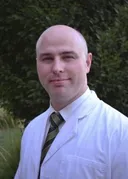So You Want to Switch Specialties? Here’s What You Should Know

Kurhan/123RF.com
One of the many reasons that undergraduate students choose to become a PA or NP vs a physician is the flexibility. The concept of “lateral mobility,” where a practitioner can work in various fields of medicine upon graduating is appealing, whereas physicians graduate and must pursue a residency that might not have been their first pick. Upon completion of residency training, a physician is then largely limited to that particular specialty unless he or she continues on to fellowship training or attempts a second residency.
Advanced practice clinicians, as they’re often called, are able to work in almost any area of medicine and enjoy varying degrees of autonomy. NPs are somewhat limited as their training often specifies their patient population, as in the case of neonatal nurse practitioners (NNP) or adult and geriatric nurse practitioners (AGNP). PAs almost exclusively train as generalists.
NPs have the added bonus, however, of independent practice in many states, while PAs, for the time being, are required to associate with a physician.
Many new grads, especially PAs, choose to practice in general medicine before attempting to enter a specialty. This allows the newly minted clinicians to further hone their diagnostic and therapeutic skills while developing a bedside manner and learning to navigate the healthcare system.
Where many PAs had previous careers in medicine, and NPs are required to have be an RN, selection of an initial specialty may be influenced by past experiences. Those who worked in paramedicine may choose to enter urgent care, while those who have experience as respiratory therapists or floor nurse may feel comfortable in inpatient medicine, for example.
Regardless of their initial choice, many PAs, and NPs, to the extent of their training, choose to take advantage of the lateral mobility offered them and work in a different area of medicine. Those who have experience in primary care have the benefit of exposure to many types of medicine and a solid foundation to build upon. Transitioning from a specialty to general medicine, on the other hand, is a bit more difficult but can be done.
Central to the success of the practitioner in transition is the new practice environment. If a practice is willing to grow with the clinician, and there is a physician willing and able to provide appropriate support, practically any movement is possible if within the legal scope of the provider. Many employers, unfortunately, have a low tolerance for these things and expect a new provider to be fully operational on day one.
When evaluating a potential change of specialty, as in any change in employment, it pays to be on the lookout for red flags such as hasty negotiations, inflexible offers, high-stress environments, and a lack of office culture. Many of these things can be spotted on an initial tour of the facility: Does the staff look rushed or unhappy? Are people forced to eat at their desks? Is the waiting room overflowing?
There are also key questions to ask the hiring manager or the individual conducting the interview. For example: What is the tenure of your current providers? How would you describe your turnover? How do current employees balance work and family obligations? How would a patient describe this office? What is your biggest weakness as a practice?
When transitioning into a new specialty, make sure to ask about opportunities for ongoing training. For example: Is there a CME budget? How is it provided--yearly, quarterly, or by reimbursement? How much time off is earmarked for attending conferences and learning opportunities? It is in the best interest of everyone involved for a practice to support abundant opportunities for the practitioner to stay current in their field. It does little good, for example, to have a small CME budget and no time to use it.
It can also be helpful to join that specialty’s national organization and regularly review their publications. There are also many different podcasts available, such as the Hippo Education or the RAP (Reviews and Perspectives) series.
Some advanced practice clinicians choose primary care because they simply can’t decide on a particular specialty. Spending a few years in general medicine may generate enough exposure to allow a more educated decision. It also puts the practitioner in an excellent position to network with area specialists who may be willing to allow a shadow. Spending time in the clinic with a specialist is probably the best way to decide if a particular area would be a good fit.
Related Posts
